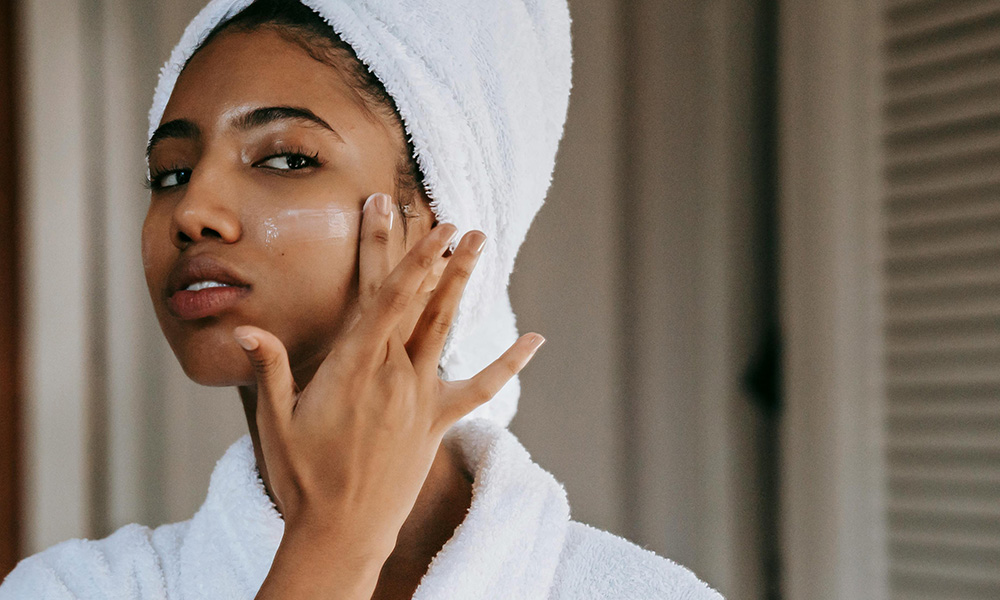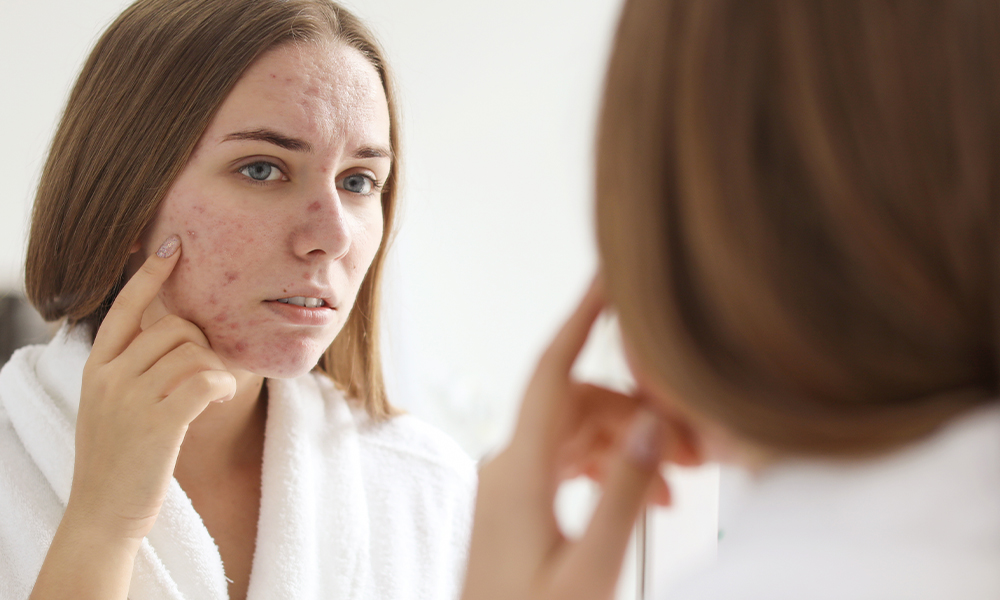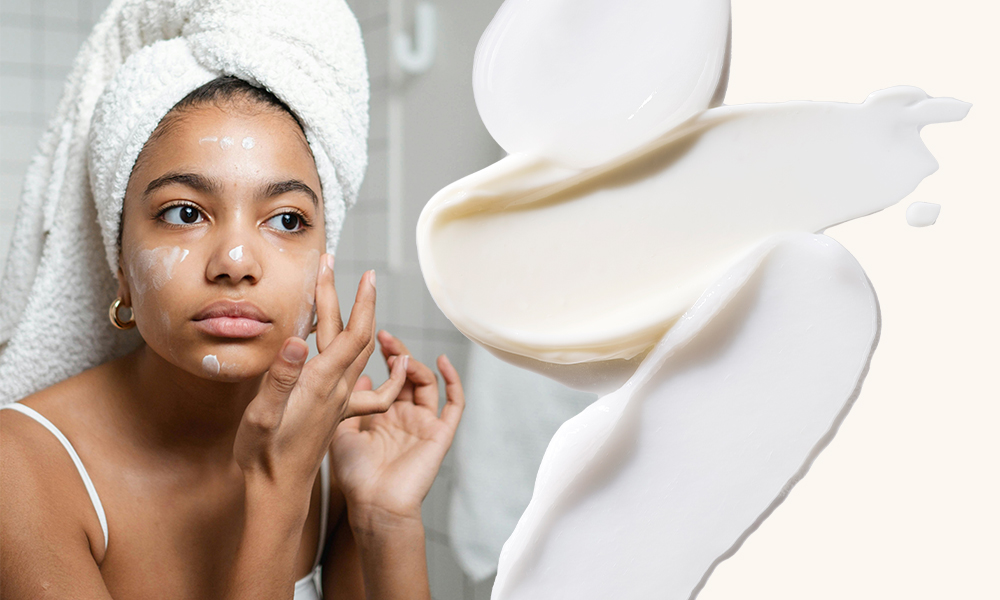The Brain-Skin Connection: Is Stress Affecting Your Complexion?
“To be honest, the best moisturiser is the one you like using.”
Dr Malvina Cunningham
• Protecting your skin is essential for maintaining general health
• How to start? Get to know your skin type
• Discover how to nurture it by choosing a routine that’s right FOR YOU
• From oily, to dry and sensitive our Dermatologist reveals all
Ask A Dermatologist: WHY You Should Care About Skincare
Link to share article here:
Back to basics with your skin type
Skincare matters and we’re going back to basics – with a little help from the experts. Here, we share some wisdom, tips and tricks from our Consultant Dermatologist, Dr Malvina Cunningham on how to start a skincare routine that’s good for your skin type.
Why care about skincare?
“We should be looking after our skin and caring for it both by protecting it and by repairing it on a daily basis.”
Dr Malvina Cunningham
Dr Malvina starts by getting to the heart of what the skin actually does.
“Our skin is our largest organ and essential to maintain our general health. It protects us from injury, regulates our temperature and our fluid balance. It’s an important neurological sensor that gives us defence from outside microbes. The function of the skin is also to help us communicate our emotional state.
“Our skin is exposed to our environment every day and this can lead to UV damage from the sun, pollution, extreme weather – as well as the changes that come with natural ageing.
“We should be looking after our skin and caring for it both by protecting it and by repairing it on a daily basis. This is true for anyone whether you have healthy skin or have a skin disease.”
How do you choose a skincare routine that is right for you?
“Choosing the right products can be confusing as there are so many products out there and a tendency to overcomplicate things.”
Dr Malvina Cunningham
“As a Consultant Dermatologist, I know most people choose products based on recommendations from friends or family. But what’s right for your friend – isn’t always right for you. Choosing the right products can be confusing as there are so many products out there and a tendency to overcomplicate things based on the saturation of information and recommendations.”
The first step in everyone’s skincare journey is to identify skin type, here’s a brief breakdown of how dermatologists do it:
Dry
Your skin might feel tight. It may even feel itchy at times and may peel. Dry skin may be more sensitive to temperature shifts and crack or peel when it’s cold outside. You’ll tend to have more visible lines, red patches and a rougher complexion.
Oily
If you have an oily skin type you’ll notice that your face can get shiny as the day progresses. Your pores may be more visible and are more likely to suffer acne breakouts including blackheads, spots and blemishes.
Combination
Combination is the most common skin type. You’ll be dry in some areas and oily in others (usually around the nose, chin and forehead), with some blackheads, slightly shiny skin and bigger, open pores.
Normal
Normal skin (we also call it balanced) is not too dry and not too oily. Most people with this skin type don’t have sensitivity, their skin feels well-balanced and pores are barely visible.
So once you know your skin type you can choose skin type-specific products to build your basic routine. You can add active ingredients to address specific skin goals after this.
Your Dermatologist’s routine recommendations
First step is to cleanse your skin. This removes dirt, cosmetic products and dead skin cells. Do this every morning and evening and you’re winning the routine game without much effort.
Dr Malvina explains, “Just by being consistent with cleansing you can improve the way your skin looks and feels.”
There’s a lot of talk about how to cleanse your skin and there are different opinions on whether you should do it once or twice in each session. Dr Malvina tells us that there are no studies on what’s best and that the argument for a single or a double cleanse isn’t evidence-based. It’s based on experience.
What Dr Malvina recommends? “I would say that a single cleanse in the morning is absolutely enough. In the evening. First, cleanse to remove makeup and sunscreen. Do a second, deeper cleanse afterwards.”
“You want to cleanse your skin so it doesn’t feel dry and tight afterwards. As a general rule, make your first cleanse a cream or balm cleanser. Oily or combination skin can use cream to foam. Oily skin can use a gel or cleansers with active ingredients. Avoid using extra tools like scrubs or rushes. If you use a gentle cloth, ensure it’s clean every time you use it.”
Next step? Hydration. Dr Malvina explains that moisturising seals in vital hydration for skin, “Our skin has a barrier and we lose water from it on a daily basis. Cleansing, temperature changes or UV light can damage our skin barrier. It’s constantly compromised and this can lead to redness and inflammation.”
Using moisturiser to protect skin is key. Most on the market will be skin type-specific. The consistency of your moisturiser may differ based on skin type or personal preference. Gel-like works better for oily skin. And as a general rule richer, cream-based products work better for dry skin.
Dr Malvina simplifies the science with some common sense, “To be honest, the best moisturiser is the one you like using.”
“To be honest, the best moisturiser is the one you like using.”
DR MALVINA CUNNINGHAM
Adding active ingredients
Adding the right amount of scientifically-proven active ingredients to a stripped-back routine – in the right concentrations for your skin – is the best way to reach your goals.
Dr Malvina stresses, “This group of ingredients has a proven effect on the skin, and that can include skin concerns or texture, and generally keeps the skin well.”
Different actives will target different (or multiple areas) – think retinoids like tretinoin for boosting skin texture or ageing well, azelaic acid for brightening skin, fighting acne-causing bacteria and brightening skin, niacinamide for regulating oil production and more.
Whether you choose single-ingredient active skincare or take out the guesswork with a Dermatologist-recommended blended and personalised formulation is your choice.
Sunscreen is essential for everyone
Regardless of skin type or concern, everyone should care about protecting their skin using a daily sunscreen. UV light can cause reactions in DNA leading to sun damage, accelerated skin ageing and skin cancer. Choose one that protects you from UVA and UBA. Make it at least factor 30. You won’t regret protecting yourself – and reminding loved ones to wear sunscreen too, we promise.
Medical facts checked by Consultant Dermatologist, Dr Malvina Cunningham
New to Skin + Me? Get your first month of personalised skincare for £4.99 with promo code DOSE – complete our quick consultation here.
Looking for a routine refresh? Add the Dream Routine to your Skin + Me subscription.
In need of a restock? Head to The Skincare Shop for one-off purchases of your Routine Essentials.



